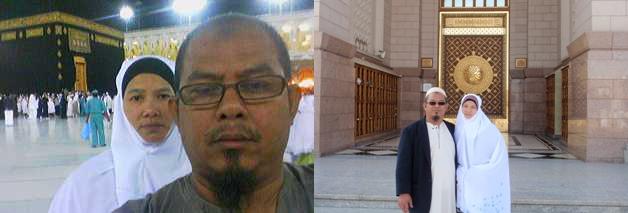From the Secrets of Fatiha and What it Contains
By Shaykh ul –Islaam Ibn Qayyim aj-Jawzeeyah as-Salafi -Rahimullaah-
Translated by Abbas Abu Yahya
By Shaykh ul –Islaam Ibn Qayyim aj-Jawzeeyah as-Salafi -Rahimullaah-
Translated by Abbas Abu Yahya
Shamsuddeen Muhammad bin Abee Bakr Ibn Qayyim aj-Jawzeeyah (d.751 A.H.) -Rahimullaah- said:
Two Strengths
‘The human being has two strengths:
1. The strength of researched knowledge.
2. And the strength of practical firm determination of actions.
A human’s complete happiness is dependent upon the perfection and completion of the two strengths of knowledge and firm determination of actions.
As for the perfection and completion of the strength of knowledge, then this is achieved
1. by knowing his Creator and his Originator,
2. knowing His Names and Attributes;
3. by knowing the path which leads to Him, and
4. by knowing what causes weakness in following that path, and
5. by knowing himself and his shortcomings and mistakes.
Having awareness of these five points, leads the human to achieve perfection in the strength of knowledge. The most knowledgeable of the people are those who know and understand these points the most.
As for the perfection and completion of the strength of practical firm determination of actions, this can only be achieved by complying with the rights of Allaah -Subhanahu- which He has over the slave, and the slave fulfills them with Ikhlaas (sincerity), truthfulness, faithfully, being righteous and by following and testifying to Allaah’s favours upon the slave of Allaah.
The slave has shortcomings in fulfilling Allaah’s rights, and so is ashamed to face Allaah with what (little) he has from servitude to Him. The slave knows that his servitude to Allaah is less than that which Allaah is worthy of, in fact it is even less and lesser than that. There is no way for him to perfect these two strengths except with Allaah’s help. Allaah guides him to the straight path to which He guided, His ‘Aawliyaa and those who are close to Him. Allaah averts him from going off the path (Siraat), through either becoming corrupted in his strength of knowledge, and he falls into misguidance, or from his strength of actions, which obligates anger upon him.
The Principles of Guidance in Sooratul – Fatiha
The complete happiness of a human cannot be achieved except with a combination of these matters, and they are included in Sooratul Fatiha and these matters are arranged in the best way, so the saying of Allaah Ta’ala: <> comprises the first principle, which is knowing about Allaah and His Names, His Attributes and His Actions.
The Names mentioned in this Soorah are the principle names of Allaah’s Beautiful Names, which are; the Name ‘Allaah’, ‘ar-Rabb’ (The Lord) and ‘ar-Rahmaan’ (The Most Merciful).
· The Name ‘Allaah’ comprises the attributes of al-Ulooheeya (worship).
· The Name ‘ar-Rabb’ comprises the attributes of Roobubeeyah.
· The Name ‘ar-Rahman’ comprises the attributes of Beneficence, generosity and Kindness.
The meanings of the Names of Allaah revolve around this.
As for Allaah’s saying:
<> : This is knowing the path leading to Allaah, which is none other than worshipping Him Alone with what Allaah loves and is pleased with, and seeking aid from Him whilst worshipping Him.
As for His saying: <> this comprises the explanation that the slave of Allaah has no way to his own happiness except by Isteeqamah (being upright) on the Siraat al-Mustaqeem (the straight path). There is no path for him toIsteeqamah except by Allaah’s guidance, just as there is no way for him to Allaah’s worship except by Allaah’s aid, in the same way there is no path for him to Isteeqamah upon the correct way except by Allaah’s guidance.
As for Allaah’s saying: << not (the way) of those who earned Your Anger, nor of those who went astray>> this contains the two extremities of deviancy from the straight path. Deviating to one of these sides leads to misguidance, which is the corruption of knowledge and belief deviating to the other side, to Allaah’s anger which is due to corruption of the intention and action.
The first part of the Soorah is mercy, the middle is guidance and last part is blessings.
The Slave of Allaah is between Blessings and Guidance
The portion of blessings a slave of Allaah has is related to the amount of guidance he has.
The proportion of guidance for a slave of Allaah is related to the portion of Mercy. So, the whole matter returns back to Allaah’s Blessings and His Mercy.
Blessing and Mercy are from those things which necessitate Allaah’s Roobubeeyah (Lordship). Indeed Allaah is The Merciful and The Giver of blessings and these are from the obligations of His Ilaheeyaeehi (being the One worthy of worship), so He is the deity in Truth, even if the rejecters deny it, and the Mushrikeen associate partners with Him.
Whoever puts into effect the meanings of Fatiha with knowledge and understanding, practically and immediately; then he will have been successful in his perfecting [knowledge and action] in the best way. Then his worship of Allaah becomes a distinct worship by which his grade is raised above that of the general worshippers.
Wa Allaahul Must’aan.’
[Taken From his book ‘Al-Fawaid’ p.115-118]
